What You Put Down the Drain Matters!
The CRD now has advanced wastewater treatment in the Core Area, but this doesn't mean that wastewater treatment will deal with anything we put down the drain. Wastewater treatment cannot remove all contaminants, which means some contaminants can impact the environment even after treatment.
The good news is it's not difficult, time consuming or expensive to limit the amount of contaminants that go down our drains. The following information provides some quick, easy and free actions to take to help keep our local environment clean, protect our private property and help maintain our wastewater infrastructure.
Unflushables
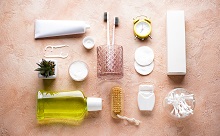 Baby wipes, personal wipes, disinfecting wipes and similar products are often marketed as "flushable." They may get past the toilet, but they don’t get very far. Unlike toilet paper, which has been designed to break down quickly once wet, wipes have been designed to stay together when wet.
Baby wipes, personal wipes, disinfecting wipes and similar products are often marketed as "flushable." They may get past the toilet, but they don’t get very far. Unlike toilet paper, which has been designed to break down quickly once wet, wipes have been designed to stay together when wet.
These "flushable" wipes accumulate in your household sewer pipes to form blockages, which cause sewer backups. Blockages form quickly especially when other solid waste and fats, oils and grease are disposed of down the drain.
Protect your home from sewer backups. Only the "Three Ps" (pee, poo and toilet paper) should go down the toilet. Items such as wipes, dental floss, condoms, sanitary products, facial tissue and contact lenses should be disposed of in the garbage. Read more >>
Cleaning Products
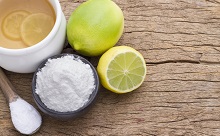 Many household cleaners are hard on the environment. In our region anything that goes down a drain inside our homes can end up in the ocean or in our groundwater. Whether you are connected to sewer or on septic, what you put down the drain makes a difference. Fortunately, there are environmentally safe and affordable alternatives to most household cleaners. Read more >>
Many household cleaners are hard on the environment. In our region anything that goes down a drain inside our homes can end up in the ocean or in our groundwater. Whether you are connected to sewer or on septic, what you put down the drain makes a difference. Fortunately, there are environmentally safe and affordable alternatives to most household cleaners. Read more >>
Medications
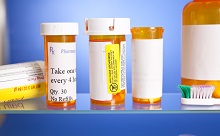 Every year CRD residents toss thousands of kilograms of unused or expired medications into the garbage or down the drain. Ultimately, these drugs end up in the ocean, where they can potentially have a negative impact.
Every year CRD residents toss thousands of kilograms of unused or expired medications into the garbage or down the drain. Ultimately, these drugs end up in the ocean, where they can potentially have a negative impact.
The good news is there are many pharmacies who collect our waste medications for proper disposal. Read more >>
Laundry Detergent (Surfactants)
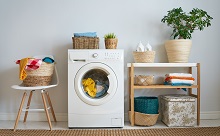 Laundry soap gets its cleaning power from detergent (also known as surfactant), the ingredient responsible for the suds made by many cleaning products. Unfortunately, detergents also have the potential to be toxic to marine life.
Laundry soap gets its cleaning power from detergent (also known as surfactant), the ingredient responsible for the suds made by many cleaning products. Unfortunately, detergents also have the potential to be toxic to marine life.
The good news is that the CRD has soft water, and soft water requires less detergent to achieve the same degree of cleanliness. Read more >>
Fats, Oils and Grease (FOG)
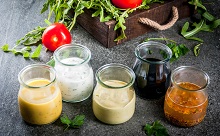 When fats, oils and grease (FOG) go down the drain, they can cause a whole host of problems for our wastewater system and local environment. From clogged pipes to depleted oxygen in the marine receiving environment, the effect of FOG in our wastewater is both costly and ecologically damaging.
When fats, oils and grease (FOG) go down the drain, they can cause a whole host of problems for our wastewater system and local environment. From clogged pipes to depleted oxygen in the marine receiving environment, the effect of FOG in our wastewater is both costly and ecologically damaging.
The good news is there are some simple alternatives to pouring your FOG down the drain. Read more >>